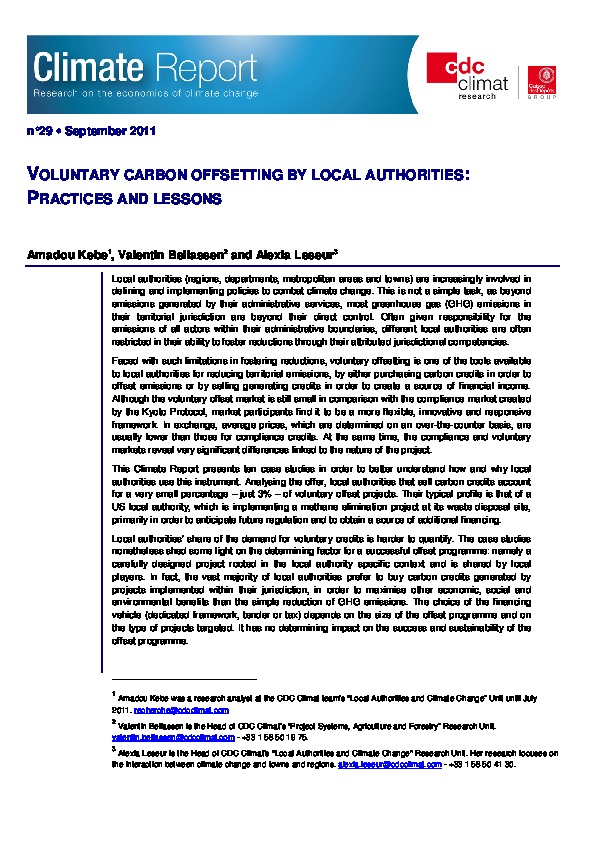Voluntary carbon offsetting by local authorities: Practices and lessons
By Amadou KEBE, Valentin BELLASSEN and Alexia LESEUR
Local authorities (regions, departments, metropolitan areas and towns) are increasingly involved in defining and implementing policies to combat climate change. This is not a simple task, as beyond emissions generated by their administrative services, most greenhouse gas (GHG) emissions in their territorial jurisdiction are beyond their direct control. Often given responsibility for the emissions of all actors within their administrative boundaries, different local authorities are often restricted in their ability to foster reductions through their attributed jurisdictional competencies.
